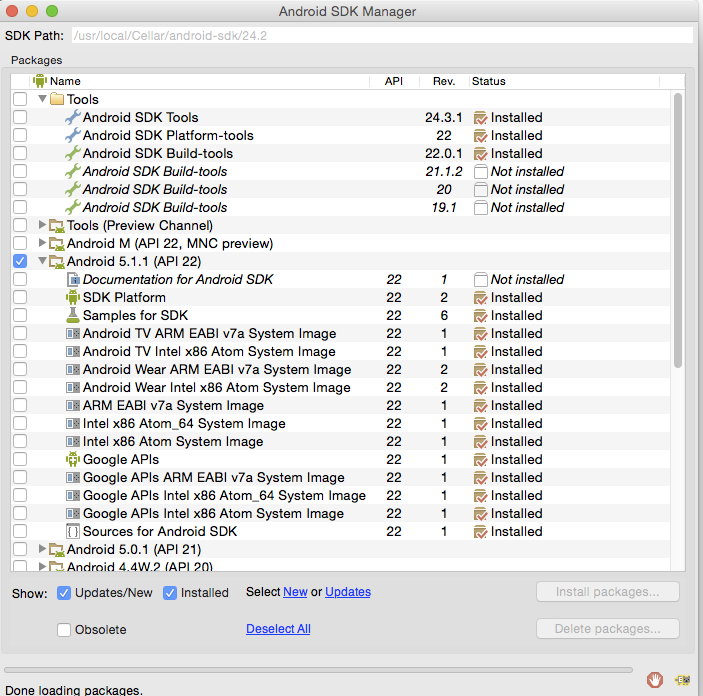

See the manufacturer website for your device for additional information. If you are developing on a Windows computer, you might need to install a device-specific USB driver. Use a USB cable to connect your device to your computer. To do this, see Android’s Configure developer options documentation. To enable USB debugging, you must enable Developer options on your device.
#Android sdk versions how to
You can install Android Build Support, the Android SDK & NDK tools, and OpenJDK when you install the Unity Editor, or add them at a later time.įor information on how to add the Android modules: More info See in Glossary: Android SDK & NDK tools, and OpenJDK. For projects, these are considered direct dependencies for packages, these are indirect, or transitive, dependencies.

Projects and packages use the dependencies attribute in their manifests to define the set of packages they require. Use the Unity Hub to install Android Build Support and the required dependencies In the context of the Package Manager, a dependency is a specific package version (expressed in the form that a project or another package requires in order to work. Install Android Build Support and the Android SDK & NDK tools Note: Unity supports Android 4.4 “KitKat” and above. By default, Unity installs a Java Development Kit based on OpenJDK. You also need to install the Android Software Development Kit (SDK) and the Native Development Kit (NDK) to build and run any code on your Android device. To build and run for Android, you must install the Unity Android Build Support platform module.


 0 kommentar(er)
0 kommentar(er)
